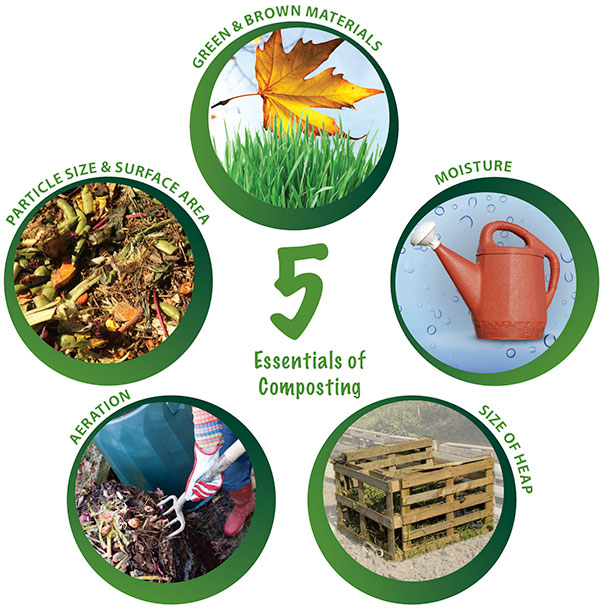What can you do?
It’s difficult to change the everyday habits that we do at home. Making one small change can make a huge difference to the environment and save you money. Here are some suggestions:
- Avoid single-use disposable items, e.g. razors, batteries, wipes
- Think before throwing anything away – can it be reused?
- Make a shopping list for your groceries, and stick to it
- Choose less packaging by buying loose produce and buying in bulk where possible
- Switch to rechargeable batteries
- Say no to Junk Mail – put a no junk mail sticker on your letterbox
- Use safer substitutes for cleaning products e.g. vinegar, lemon juice, baking soda, salt, and olive oil used alone or in various combination
Stop Food Waste
One-third of the food we buy ends up in the bin, which can cost the average Irish household around €700 each year.
The main reason people waste food is that they buy too much or they don’t use it on time. By making small changes to how we manage food at home, we can reduce the amount of food we waste and save money at the same time. Here is a helpful list of tips you can start today:
- Don’t go shopping when you are hungry, you’ll buy more than you need.
- Before you go, take a photo of the inside of your fridge with your phone so you can remind yourself what’s there as you go around the shop.
- Check use-by-dates to avoid buying food that might be thrown out if not eaten immediately
- Beware of special deals – these are great for toilet rolls and shampoo but bad for fruit, veg and salads (anything that can go off quickly).
- If it’s an option for you, try shopping online for the basics - you get only what you want because you are not distracted by all the other goods on shelves AND you save money.
There is plenty of help and advice on food waste on the Stop Food Waste website.
Hazardous waste in the home

Everyday products used for cleaning, decorating our homes, improving our gardens, and even for personal grooming are hazardous to ourselves and the environment. This is recognised by the hazard symbol on the label of the product. Below are some tips in reducing, preventing and managing hazardous waste in the home:
- choose products that have a lesser impact on the environment
- more environmentally friendly products
- purchase correct quantities of hazardous products to eliminate leftovers
- recycle batteries correctly in shops that have the blue WEEE boxes or to your local recycling centre
More information if needed can be found in the EPA’s Householders Guide to Hazardous Waste Prevention. There is extra information on waste batteries provided by the EPA.
There is a room by room approach to saving money and reducing the use of chemicals and hazardous materials in this Greener Cleaning Guide.
For the garden, there is a Greener Gardening Guide to help reduce the environmental impact you have and preventing waste when gardening.
Manage my Bins
All waste collectors operate a system of waste separation, collecting residual waste and recycling waste on alternate weeks. You should always check with your bin service provider what can and cannot go into certain bins.
Recycling (Green bin): Common materials collected in the recycling or green bin include cardboard, paper, plastic bottles, drinks cans, tins and Tetra paks.
Organic Waste (Brown bin): Householders must segregate their food waste and put it in to the brown bin. Materials collected in the brown bin include kitchen food scraps, fruit and vegetables, plant trimmings, tea bags.
Residual or general waste (Black bin): Finally, your residual waste bin is for any waste that you cannot put into your recycling or organic bins.
Top tips for managing your bins
- Ensure you know the correct collection day for your area and the schedule for recycling and residual waste collections.
- Separate your waste at home. Bins with 2 or 3 compartments are available in DIY shops or supermarkets or use containers that can fit neatly into your kitchen cupboards.
- Do not contaminate your recycling by putting food waste or other compostable materials (such as garden waste) in the green bin.
- To recycle more, use smaller bins or containers to segregate your recycling waste in different rooms around the house, e.g. bedrooms and bathrooms.
- Use a container or caddy in the kitchen for your food waste. Once this is full it can be emptied into your bin outside.
- By keeping your residual waste to a minimum and correctly using your recycling and food waste bins you will save money.
You can find out more info on how to use the brown bin correctly.
Stop Food Waste is a helpful resource.
Composting
Composting is the natural process of decomposition that turns organic materials like garden waste and vegetable food scraps into a dark, crumbly and earthy smelling material called compost.

Composting at home is an effective way of dealing with garden and unavoidable food waste.
Benefits of composting at home:
- Cut waste expenses and save money
- Prevent waste and conserve resources
- Build healthy soil
- Protect biodiversity
- Preserve our environment
There is lots of help on composting on the EPA’s Stop Food Waste website.
The EPA also provide a free downloadable Practical Guide to Home Composting.